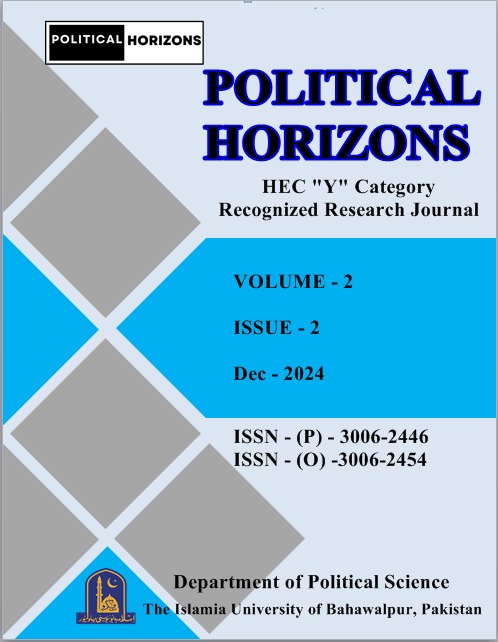Public Perception about Tackling Fake News on Social Media: A Case Study of Rawalpindi and Islamabad
Abstract
In the era of information dissemination, the landscape of news consumption endured profound changes, as the emergence and spread of fake news significantly transformed how people perceived and responded to information. The study aimed to explore how exposure to fake news affects consumers' trust in new media, susceptibility to misinformation, behavioral responses, verification habits, sharing tendencies, and media literacy levels. The study employed a quantitative style through a survey methodology, with a total of (N =300) respondents selected via WhatsApp using Google Forms. Drawing upon the self-designed questionnaire based on a Likert scale, researchers evaluated respondents' perceptions on numerous dimensions, including confidence in new media, susceptibility to fake news, behavioral responses to misinformation, media literacy levels, and verification practices of fake news. The survey revealed that older, male, and educated individuals, with various income levels, were predominant among respondents. Many expressed concerns about fake news, emphasizing its impact on public trust and societal well-being. Respondents totally supported education and media literacy as vital tools against misinformation, advocating for their inclusion in the school curriculum. While opinions are mixed on social media platforms' responsibility, a significant portion is devoted to verifying news accuracy before sharing. The study concluded that exposure to fake news significantly weakened trust in new media, highlighting the importance of media literacy education and verification practices in alleviating misinformation's impact on society.
Keywords: Public Perception, Social Media, Fake News, Media Literacy

Downloads
Published
How to Cite
Issue
Section
License
Copyright (c) 2024 Dr. Ghulam Safdar, Syeda Nameen Fatima

This work is licensed under a Creative Commons Attribution-NonCommercial 4.0 International License.




